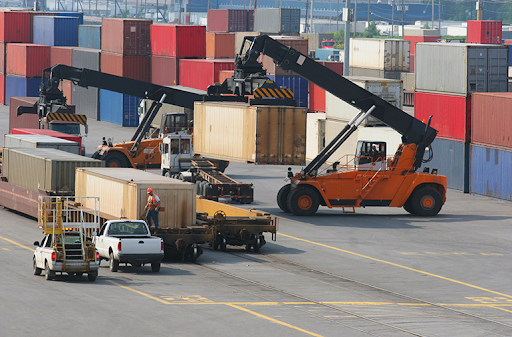What is Transit Trade?

What Does Transit Trade Mean?
Transit trade generally refers to the process of purchasing a product from abroad and then selling it to another country without it entering Turkey's customs territory. The fact that products involved in transit trade are not subject to any taxes increases interest in this form of trade. If products purchased from abroad are brought into Turkey and placed in bonded warehouses before being sold to another country, a warehouse declaration must be issued.
In this type of trade, the company in the country from which the product is purchased must issue an invoice. Similarly, we are required to issue an invoice to the customer in the country to which we are selling the product. This invoice must be prepared in English and should not include VAT. Since VAT is not paid during the purchase of the goods, it should not be included in the sales invoices either. As known, the trade of certain special goods is prohibited under international agreements. When engaging in transit trade, it is important to pay attention to these prohibited goods. The same care should be taken regarding countries where import and export are strictly prohibited.
The regulations of the country through which the products transit should be taken into account. Many legal entities or individuals in Turkey benefit from the privileges of transit trade. The main goal in this trade is to take the product from the seller and deliver it to the buyer residing in a different country. Except for special circumstances, the specific route through which the products are shipped is not important. When examining its regulations, transit trade can be conducted more easily and quickly compared to traditional import and export processes. It is also possible to earn foreign currency for Turkey through this trade. Since the products purchased in this process are not considered imports and the products sold are not considered exports.
Transit trade is not a form of payment but a type of trade. The main reason why a customs declaration is not required is that there is no practical actual import or export transaction.
Although not exactly the same, dropshipping and transit trade are quite similar. In this type of trade, for example, if you receive an order from a customer in Italy and brand a product manufactured in Indonesia or another country before transferring it directly to your customer, you are engaging in transit trade. Additionally, you have the opportunity to be exempt from VAT and avoid bureaucratic processes that cause significant time loss. The difference with dropshipping is that it operates without holding stock.
Transit Trade Accounting Records
We have highlighted that the necessary documents for transit trade are different from other commercial processes. So, how are transit trade accounting records organized?
Companies adopting this form of trade do not need to issue a customs declaration. For products entering the customs areas within the country, a transit trade declaration must be issued. It is important that the shipping documents are prepared considering the rules of the countries from which the products are shipped and to which they are sent. Products sold without entering Turkey are exempt from VAT. The VAT on invoices related to transit trade is allocated to costs or expenses. Therefore, it cannot be deducted as an input in VAT returns.
In import processes, the account "153 - Trade Goods" is used under normal circumstances. However, in transit trade, instead of this, the account "157 - Other Inventories" should be used. Moreover, the profit obtained after completing a transit trade must be recorded in the ledger. Details regarding transit trade should be found in accounting records rather than in VAT returns. Therefore, purchase/sale transactions should be shown, and the net difference should be declared.
How to Conduct Transit Trade?
Entrepreneurs who want to engage in transit trade are known as transit traders. In today's world, where international trade interactions have reached significant levels, the number of entrepreneurs involved in transit trade activities has increased. So, how is transit trade conducted?
To engage in transit trade, first, a transit trade declaration must be prepared. This document is issued directly through customs. In other words, there is no need to go directly to customs for goods that do not enter the customs of the country. This declaration becomes important once the goods enter the customs area of the country. The invoice issued from abroad must be prepared in Turkish. As we emphasized above, the invoice for the goods you transfer abroad must be in English.
Invoices issued in both Turkish and English must be delivered to the buyer without any mistakes. Payment transactions should be made from the buyer company's account to the seller company's account. There are no restrictions on the transfer methods that can be used in transit trade. It is crucial to review the current regulations of the countries from which you will receive and to which you will send the goods. Normally, it is necessary to be an official member of various exporter associations to engage in exports, but this requirement does not apply to transit trade processes. This flexibility allows transit trade transactions to be conducted in a very practical manner.






